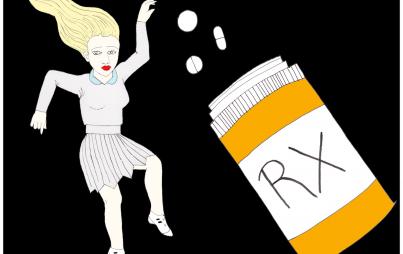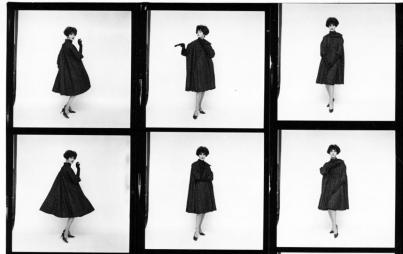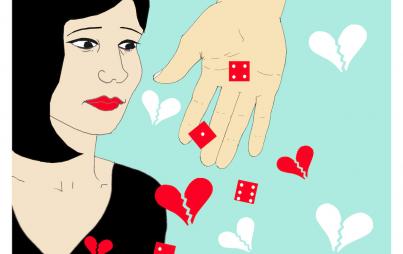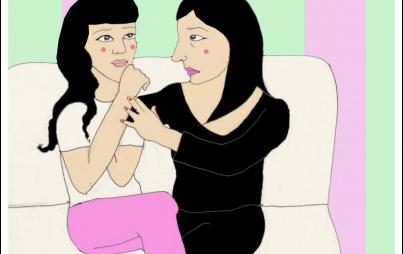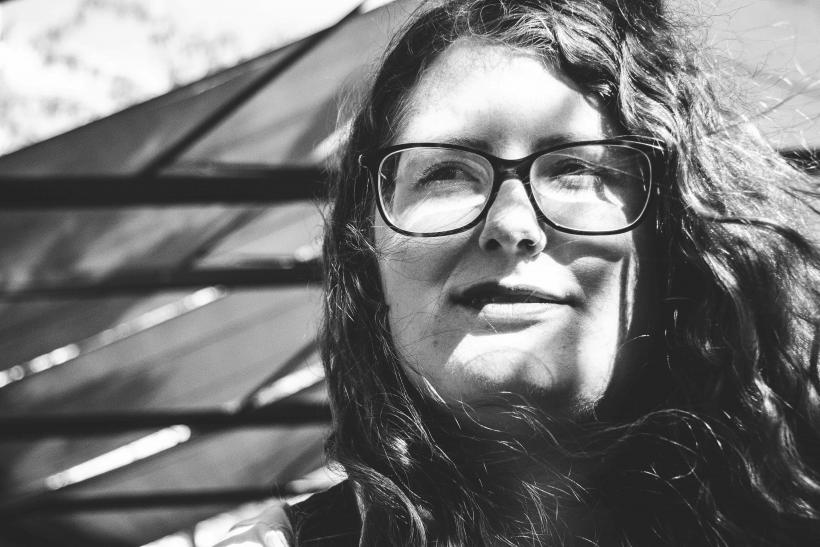
Photo by Ehimetalor Unuabona on Unsplash
I often think back to the broken woman I once was: the one who drowned herself in four bottles of wine a day, desperately seeking a way out of this life. I wish I could reach out to her when she began that downward spiral. I’d tell her that she didn’t need to continue until she found herself in a pit of despair and that there was always a way out.
The sad reality is that many of us lose ourselves in addiction, and not enough make it out.
In honor of National Recovery Month, it is important that I share my story of recovery: to give hope to somone who thinks her life is too painful and too desperate to do anything but numb her reality every day.
National Recovery Month is an annual event dedicated to increasing awareness and understanding of mental and substance use disorders, and to celebrating the lives of those fortunate enough to recover. It promotes the message that recovery — by any pathway — is possible. This year’s theme is: Join the Voice for Recovery: Invest in Health, Home, Purpose, and Community. That’s a theme that is deeply personal to my experience of recovery.
I’ll never forget the last time I drank or my state of mind at that desperate moment in my life. I’d just left my job a week earlier and didn’t have much to live for. I had few friendships left; I became known as “Liv the liability” — no one knew how I would behave on a night out and I was often too much to handle. I’d either verbally attack someone or pass out in the bathroom of a random bar. My family was desperately worried but trying to maintain their boundaries in an attempt to stop enabling me. My depression was at an all-time low, and the prospect of ending my life seemed appealing.
One Thursday, I did what I always did if there was wine left over from the night before: I drank it, in the morning. As the acidity of cheap red wine hit my stomach, I tried desperately to quell the nausea. I’d eat just enough to line my stomach, and then carry on. I instinctively knew it was going to be a painful weekend. Yet as soon as the numbness of that first glass of wine began to radiate through my body, I had to have more. Back then, the purpose of my life wasn’t fulfillment and joy — it was chasing that rush of the first line, and the first glass of wine.
You Might Also Like: Three Things Only Moms Struggling With Alcoholism Will Understand
Of course, one bottle always turned into two, and two into I can’t remember how many — a typical night was four bottles. But that weekend was different. I had nothing to lose. No job to get up for, no 9 a.m. meeting, no brunch. Nothing. Before I knew it, I’d spent two nights on the bathroom floor so sick that I was hugging the toilet. This was my moment of grace. Finally, the scales tipped from self-destruction toward wanting more than a life of drowning myself.
I truly believe I was one of the fortunate ones to find recovery. If a family member had not shared their story and walked the walk as a person in recovery, then I may not have known a way out. I called them, and they told me about an Alcoholics Anonymous meeting two blocks from my apartment. Once I stopped throwing up, I lugged myself to the meeting on Tuesday, March 26, 2012. I haven’t had a drink since.
Today, my recovery looks very different, but here is what I have learned:
What I needed wasn’t wine — it was self-compassion, health, and healing.
Through the process of recovery, I realized that I suffer from Complex PTSD, and all those years spent drinking my life away was a way to numb the pain from my trauma. But numbing out only led to more instances of trauma and more pain. What I needed was to recover the ability to self-regulate through intensive therapy, gaining agency, learning how to look after my health, and learning how to manage stress effectively. Recovery became about learning how to come home to me.
The only way out is through.
There is no amount of alcohol and drugs that will take the pain away. You’ll just need more and more to have the same effect, and even then, you’re never entirely numb. An ocean of wine wasn’t enough, because I was always left with myself when I woke up the next morning.
Recovery is one of the most difficult and, yet the most freeing, experiences of my life.
I have learned how to have healthy relationships, how to set boundaries and that it’s okay to say no. Today, I only do things that feel right for me and are in line with my goals in life.
There is power in community.
Without others in recovery, I wouldn’t feel the power of collective empathy. Someone who knows how difficult the pathway of recovery can be is immensely comforting. As C.S. Lewis said, “Friendship is born at that moment when one person says to another, ‘What! You too? I thought I was the only one.’”
I no longer have to perpetuate the dysfunction of my family.
When you come from a family of substance use disorder, your life can be rife with dysfunction, few boundaries, chronic illness, and unhealthy relationships. Recovery has enabled me to see that I no longer have to use my family of origin as a model for a healthy and happy relationship. This is perhaps the most painful lesson of all.
Recovery is something that I can direct, and I don’t need to give my power to God.
Initially, the 12 steps gave me the tools to save my ass. But eventually, I felt disempowered. No longer do I think that alcohol and drugs have control over me; instead I choose not to destruct my precious life anymore.
I am not defective; I am an incredible human who has overcome adversity.
I no longer look at substance use disorder as a disability. I see it as a catalyst to my becoming a powerful, transformative, and resilient woman who is capable of anything she sets her mind to. I stopped evaluating my character defects several years ago and instead choose to focus on my assets and how I can grow more aligned with my values of integrity and service.
Recovery, for me, is all about a life of purpose.

Today I have a life that is big enough to make drugs and alcohol unappealing. I have a job that I love, I help others through my words, and I advocate for people in recovery living a fulfilling life. This life makes me want to get out of bed in the morning.
Today, my life is unrecognizable from the woman who lay on the bathroom floor wishing her life was over. If this is you, please know that life is so much better on the other side. There is nothing for you at the bottom of the bottle apart from more misery.



